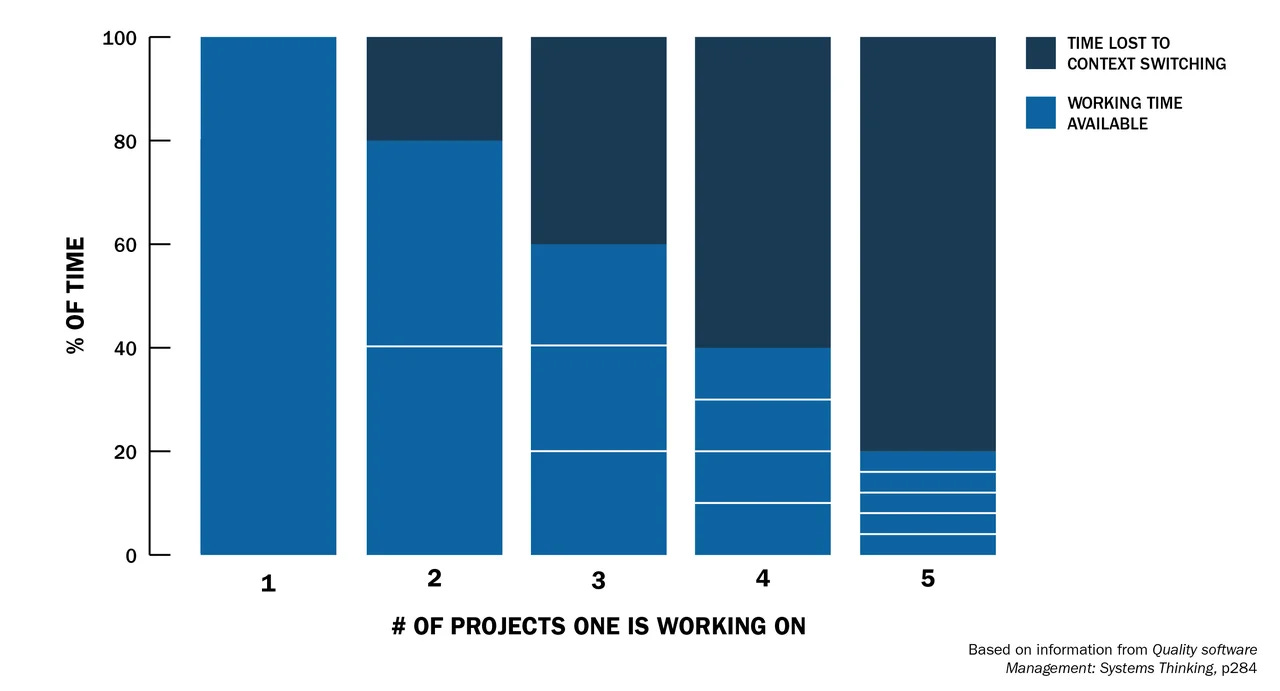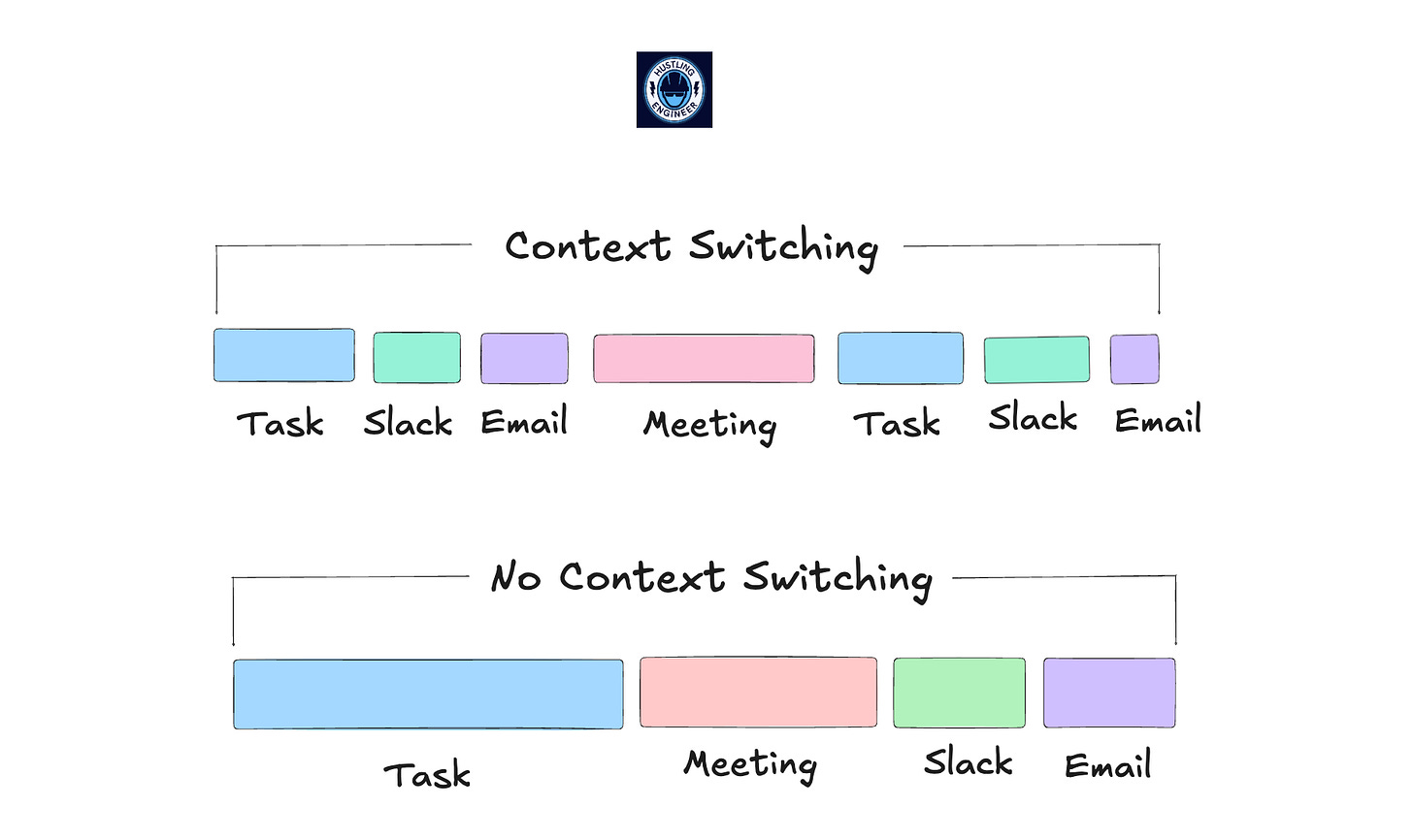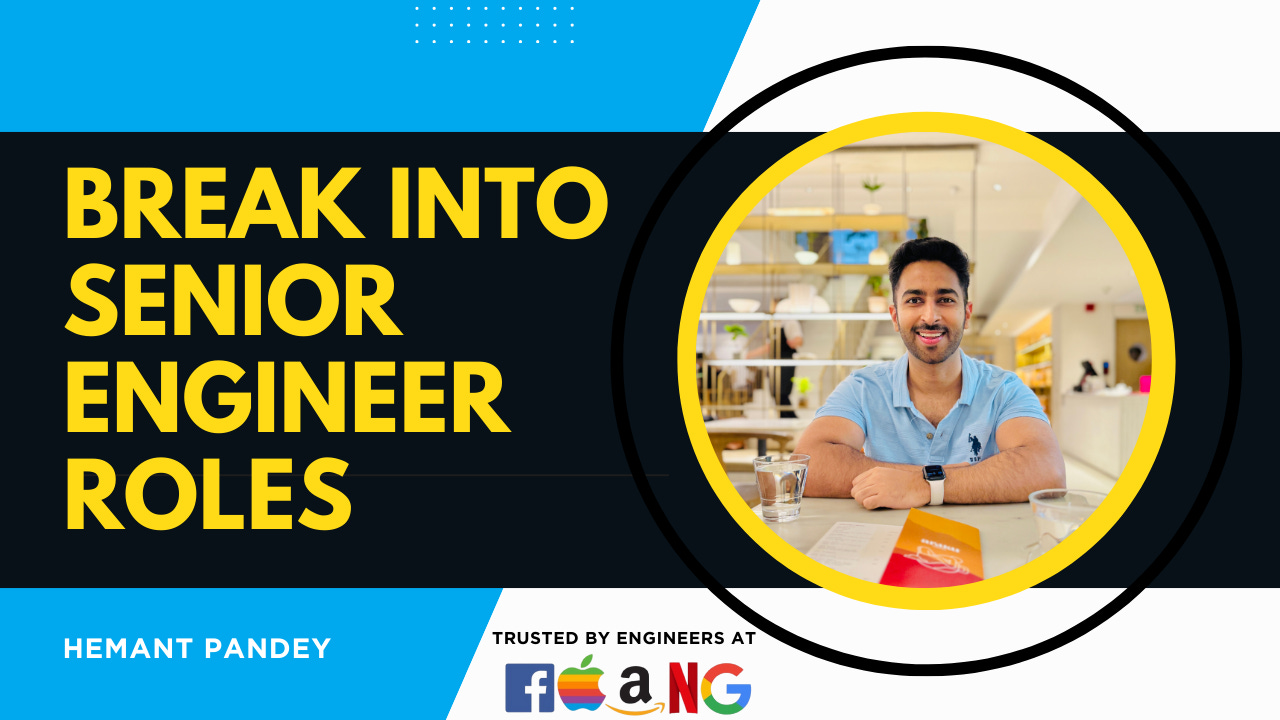Context Switching - The Career Killer For Software Engineers
How you can avoid productivity loss due to context switching
Before we start, do check out
“Break Into Senior Engineering Roles” Cohort
I have opened the application form for my next cohort, which kicks off in November
If you are a software engineer with 2-15 years of experience and want to get the offer you deserve, you can check the details here and fill out the application form below if interested
I handpick 15 folks so that it is a close cohort, and members can get maximum value
You know that feeling when you’re deep into debugging something tricky
And suddenly Slack pings?
You check it: “Hey, can you take a quick look at this PR?”
You jump in. Review. Add a comment.
Then back to your code, and it takes a full minute just to remember what you were even doing.
That’s context switching.
And it’s quietly wrecking our focus, output, and even our long-term career growth.
The Hidden Cost of “Just a Minute”
Every time you switch tasks, your brain has to reload the state of what you were doing.
That mental reload costs real time - sometimes 15 to 25 minutes to get back into full focus.
Now think about how many times that happens in a day.
Slack messages. Code reviews. Quick syncs. Jira updates. Emails.
Even if you don’t notice it, these little switches add up to hours of lost focus every single day.
And by the end of it, you feel exhausted - but weirdly, nothing major got done.
Your productivity just got lost in fragments.
Below is a graph based on a study of how much time you actually lose to context switching

Why It Hurts Engineers More Than Anyone
Our job isn’t just about “doing tasks.”
It’s about holding complex systems in our heads.
When you’re coding, you’re juggling the full mental map - data flow, edge cases, architecture, dependencies.
You’re in the zone.
Then a random ping hits.
Your brain flushes the cache.
And when you come back, it’s like reopening a massive project and waiting for everything to recompile.
You’re not “slow”
You’re just context-swapping your way out of deep work
The Part That Sneaks Up on You
At first, you just feel busy. Then you start to notice:
You’re shipping less.
Reviews take longer.
You’re tired by 3 PM but can’t point to what you achieved.
Over time, that affects how people perceive your velocity.
The engineers who seem “faster” aren’t always smarter; they’re just better at protecting their focus.
And that compounds.
Better focus → more output → more trust → bigger projects → faster growth
That’s the part no one talks about.
What Finally Helped Me
There was a point when I felt like my entire day was spent switching instead of working.
I’d start the morning motivated, open my IDE, and three hours later, I’d have 10 Slack messages answered, two PR comments posted… and zero real progress.
It was frustrating.
Not because I was lazy, but because I was busy in the wrong way.
Over time, I started experimenting with small tweaks.
Some worked instantly, others took months to stick.
Here’s what actually made a difference:



